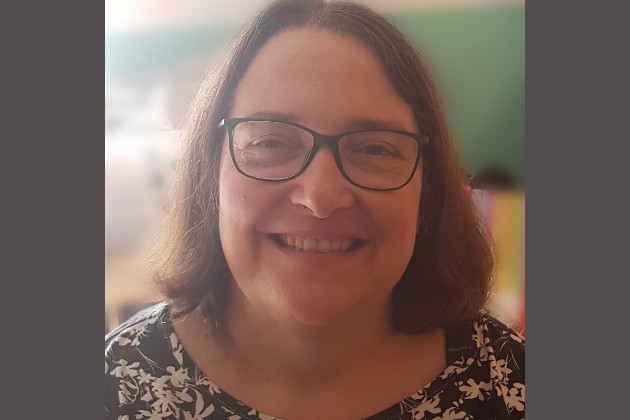For nursing staff with a disability, long-term health condition or those who are neurodiverse, changing jobs or line managers often means starting difficult conversations from scratch, sometimes having to renegotiate what’s already been agreed.
But health ability passports have the potential to make everyone’s life easier.
“We’ve been championing the concept for a long time, and they’re already being used in some trusts, although not a majority,” says Holly Chadd, RCN Peer Support and Project Information Officer.
“At its heart is being able to sit down with your line manager and have a really honest and safe discussion about what you need to be able to work effectively, with your employer taking responsibility for getting those reasonable adjustments in place.”
We've had some great feedback from reps who've used it
Reviewed and updated in August, the RCN has produced comprehensive guidance targeted at individuals, line managers and union reps. “We’ve had great feedback from reps who’ve used it,” says Holly.
“It was inspired by a couple of members who had an almost revolving door of new managers, which left them having to constantly explain their conditions and what they needed. This takes some of that frustration away. The reason they’re called a passport is because it’s a document that’s recognised by everyone, at least while someone stays with the same employer.”
What is a health ability passport?
Also known as disability, health or workplace adjustments passports, they provide a framework to discuss an employee’s health and what changes can be made at work to support them.
Completed by the individual and their line manager, a passport is signed by both parties indicating adjustments will be made and upheld.
They should be reviewed at agreed intervals to ensure adaptations remain appropriate, with adjustments made if the employee’s needs or their role has changed; or if they are still reasonable, in line with the employer’s requirements, and effective in enabling the employee to fulfil their role.
Passports can be used to discuss and document:
- who will take which actions and by when, in order to establish adjustments – for example, procuring equipment
- procedures to follow if the person becomes unwell, including who to contact, particularly in the case of mental ill health
- behaviours to look out for that may signal health is declining or an episode of illness is beginning
- things that can trigger or exacerbate the disability or condition, and how these can be minimised
- recommendations from occupational health, if applicable.
Starting a conversation
For RCN steward Ngaire Cox, the benefits of health ability passports are too many to be ignored. “It helps staff who might be reluctant to share details of their conditions, supporting them to be more open so they can get the adjustments they need from their employer,” she says.

“We know that sometimes people don’t find it easy to talk about their own health, especially those who have conditions that unfortunately still have a stigma attached, for instance neurodiverse conditions.
“They worry they might be perceived differently or seen as incapable of doing their job, so they keep conditions such as dyslexia to themselves, fearing what might happen if they disclose it. This empowers staff to start those discussions with their manager.”
We need to be able to say: if you have a condition, don’t be afraid to declare it
At Sussex Community NHS Foundation Trust, where she is Chair of Staff Side, Ngaire says they are currently working on a health and wellbeing passport for all staff members, where any adjustments can be discussed and enabled.
“The health service has an ageing workforce, members of which are expected to work longer before retiring, so inevitably more conditions develop over time,” says Ngaire, who represents the South East on the RCN UK Stewards Committee.
“The pandemic has shone a light on the health and wellbeing of staff, creating a catalyst. We need to be able to say to them: if you have a condition, don’t be afraid to declare it. Nursing should be open to all. We want to celebrate the diversity of the workforce, which reflects and supports a diverse population.”
Top tips to encourage the use of health ability passports
- Raise the concept with your local staff side committee or partnership forum, explaining the benefits, suggests Holly.
- Speak to your local equalities lead or your trust’s staff disability network, seeking their support for the idea.
- Although the focus has been on NHS employers, any employer can have a health ability passport, says Ngaire. “It’s really about understanding your workforce and helping them be the best they can be,” she says.
- If you’re supporting a member who needs adjustments, try approaching the issue using the process of creating a health ability passport, says Holly. “And don’t forget to record how it helps,” she says. “Case studies that demonstrate the effectiveness of passports are invaluable.”
Resources
The RCN’s detailed guidance includes advice for both line managers and individuals on how to complete a health ability passport – from arranging and opening the initial meeting, to ideas about adjustments and what can be shared with the team.
The guidance can also benefit any member needing adjustments even if their employer doesn’t currently recognise a health ability passport.
NHS Employers has also produced an editable NHS health passport, which allows individuals to record details about their disability or health condition.
The template includes sections such as what helps someone perform their role better, for instance, specific technology and equipment; and what makes their work more difficult, such as particular shifts or methods of communication that are challenging.
There is also guidance targeted at line managers and the RCN’s peer support service can be used by any member with lived experience of disability and/or neurodiversity to give and receive non-professional support.








